
And here we are. They said it couldn’t be done, and occasionally I believed them, but we have arrived at the Top Ten on my list of CCM albums you ought to consider worthy of your time and hard-disk space.
It wasn’t easy though. Right up to the end, like anyone involved with a likewise undertaking, I wondered if my choices were sound. After careful scrutiny, I’m pretty happy with the final ten, but this is not to say it is a definitive list, and that’s not really the point anyhow. The point was to de-stigmatize a section of this music from being considered “church tract junk.” In most cases, the world and spiritual views of the artists remain clear, but the presentation and intentions are artfully accomplished, and art in the end is a great expression of faith in itself.
Is there junk out there? Of course, but there’s junk in every genre. Just because this particular cubicle has a viewpoint, and some would argue an agenda, doesn’t mean some secular work doesn’t have agendas, and still is accepted and honored by the world at large. I defy you to say the folk movement of the late-’50s and early-’60s hadn’t an agenda. Pete Seeger himself would disagree.
Shall we dispense with the jibba-jabba?
Yes, let’s.
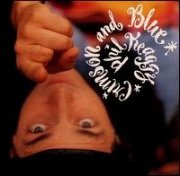 10. Phil Keaggy – Crimson and Blue
10. Phil Keaggy – Crimson and Blue![]() (1993) Here was the moment where, if there was any doubt about Phil Keaggy’s rock and roll credibility, it was knocked down and out. He tries on several hats here, starting with the anthemic, Alarm/U2-like opener “Shouts of Joy,” leading to the Beatlesque “Love Divine,” to the jam-tastic blues rock of “Doin’ Nothin'” and much more. While that might indicate a schizoid, unfocused collection to some, Keaggy finds a way to make these disparate styles seamlessly integrated.
(1993) Here was the moment where, if there was any doubt about Phil Keaggy’s rock and roll credibility, it was knocked down and out. He tries on several hats here, starting with the anthemic, Alarm/U2-like opener “Shouts of Joy,” leading to the Beatlesque “Love Divine,” to the jam-tastic blues rock of “Doin’ Nothin'” and much more. While that might indicate a schizoid, unfocused collection to some, Keaggy finds a way to make these disparate styles seamlessly integrated.
The cover of Van Morrison’s “When Will I Ever Learn To Live In God” is, alone, worth the price of admission. I will admit that it was jarring to hear Keaggy’s vocal on it, his McCartney-like sound kicking out Morrison’s rather wordy lyrics, but the shock goes away quickly and, rationally speaking, when you are fitting that many words into a musical line, it’s going to strike a similarity, otherwise there would be no understandable way to do it.
Some of the best moments are just flat-out great pop songs like “World of Mine,” “Everywhere I Look” and “All There is to Know” which all bear the stamps of a time period in which melody was as important as any other element, and a hook was never left to waste.
Crimson and Blue got muddled in Word Inc.’s numerous re-brandings in the ’90s, this one falling under the alternative affiliate WAL (Word Alternative) and, as usual, the labels missed the point. While the company was fashioning a corporate umbrella, Keaggy was making music that defied any such enclosure. He still does, in fact, but on an independent basis. All have been worth their effort, but in my mind, none have outshone Crimson and Blue.
For more on the story: Check out Will Harris’ interview with Phil Keaggy here.
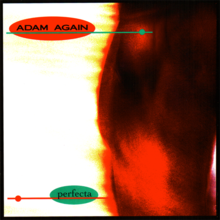 9. Adam Again – Perfecta
9. Adam Again – Perfecta![]() (1995) The last Adam Again album. It was an anomaly in the medium; it took an unflinching look at a marriage coming undone from within, and as with many of the albums that have been on this list, calling it Christian Rock only is a matter of the segregation applied to the beliefs of those who made it, not necessarily to the content. That, which is evident, is just raw and honest.
(1995) The last Adam Again album. It was an anomaly in the medium; it took an unflinching look at a marriage coming undone from within, and as with many of the albums that have been on this list, calling it Christian Rock only is a matter of the segregation applied to the beliefs of those who made it, not necessarily to the content. That, which is evident, is just raw and honest.
I spoke with Michelle Bunch (a/k/a Riki Michelle) a few years ago and you will find the link below to that conversation. Everything I said then, I stand behind now. More than that, however, I wanted to ramble for a moment about the boundaries of any artistic endeavor. The best stuff goes anywhere and is unafraid. Yes, things may be said in an altered way as befits the structures and restrictions of a style, a genre, a cultural agreement. The world of CCM would constitute one of the more difficult boxes in which to reside.
But artists have been doing that for centuries. As free as the world of film is now, almost every topic touched upon now was also dealt with during the days of censorship, and often it is more powerful because you have to think through the sneaky clues to have the answer arrive in your head. It is not simply injected in there, explicit and fulfilled. It is not always so, however. Sometimes you actually have to show the scene of the event, not just describe it. Sometimes you have to see it for yourself to believe it.
What makes Perfecta so great is that it is exactly what these musicians did. They said things that were discouraged, about topics that Christianity generally tends to shy away from, being the dissolution of a marriage, how sometimes, no matter what you’ve been told or have believed over the years, sometimes the end is the end. Even so, life can go on. There have been many recordings of love breaking up over the years. Whole careers have been built on them. Rarely do they get this intimate, and that it happened under the roof of a subgenre that frowns upon such uncomfortable topics, elevates Perfecta beyond rock music. It’s a jagged, scratched, even bloody piece of art.
For more on the story: Here is the interview we conducted with Michelle and Paul Valadez.
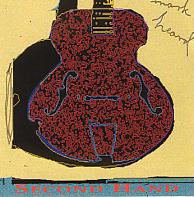 8. Mark Heard – Second Hand (1991) Which Mark Heard albums do you pick? Which do you leave off? Second Hand has intense competition all the way to the end, but I finally gave up and added it on the strength of its signature tune, “Nod Over Coffee.” It is a portrait of joy and of dissatisfaction, built on the unfashionable premise of having to work for a living, often not at what we would like to be applying our skills toward. It’s also about an abiding love between two who seem to never have time together, and yet their attachment is strong and understanding.
8. Mark Heard – Second Hand (1991) Which Mark Heard albums do you pick? Which do you leave off? Second Hand has intense competition all the way to the end, but I finally gave up and added it on the strength of its signature tune, “Nod Over Coffee.” It is a portrait of joy and of dissatisfaction, built on the unfashionable premise of having to work for a living, often not at what we would like to be applying our skills toward. It’s also about an abiding love between two who seem to never have time together, and yet their attachment is strong and understanding.
What separated Heard from so many was his attention to lyrics. They never sounded strained upon listening, but after a little scrutiny you see they must have been sweated over fiercely. There is no waste, no clunkers thrown in for the sake of maintaining a rhyme-scheme. If he needed to resort to the “girl/world” unholy pairing, you can be sure he found a unique way of doing it, but to my knowledge, he never stooped so low.
Truth gets thrown up a lot. It’s often applied as an excuse to say highly inappropriate things, a pre-emptive mea culpa to cover over the reality that a more nuanced verbalization wasn’t given an option or enough time to be fleshed out. Heard’s truth cut hard into the Christian life and, as opposed to what the TV preachers and pamphlets insist, faith does not guarantee a hall pass. If anything, it might guarantee more pain that you counted on. “Look over your shoulder and tell me what’s coming. Tell me, what is the bogey that you’re so afraid of?” “Look into your sad eyes and tell me what you see. What is left of the child who is hiding behind them?”
In the end though, love is worth the effort. Believing is better than not believing and having a hope, even if hope is so easily ridiculed, is better than being hopeless. Heard summed it up: “Love is not the only thing, but it’s the best thing.” He was so good at what he did.
For more on the story: I wrote an overview of Heard’s work for the site a few years ago. You can find it here.
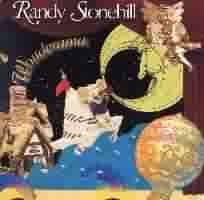 7. Randy Stonehill – Wonderama
7. Randy Stonehill – Wonderama![]() (1991) Stonehill has made many albums in his career, some of which are considered classics, others not so much. Yet he’s always put a lot of energy and enthusiasm into whatever he’s done, and a lot of how a project is received depends on the spirit of the listener. An example of this is the album Equator, which I love, but fully recognize as being a weird little gem. Alongside some fantastic tunes are some truly goofy ones, more inspired by Weird Al Yankovic than any scriptural burden, but I find it immensely enjoyable.
(1991) Stonehill has made many albums in his career, some of which are considered classics, others not so much. Yet he’s always put a lot of energy and enthusiasm into whatever he’s done, and a lot of how a project is received depends on the spirit of the listener. An example of this is the album Equator, which I love, but fully recognize as being a weird little gem. Alongside some fantastic tunes are some truly goofy ones, more inspired by Weird Al Yankovic than any scriptural burden, but I find it immensely enjoyable.
Wonderama, however, pushes ultimate weirdness mostly to the margins, leaving behind an album that is both beautiful to the ear, moving to the heart and often to the feet as well, and some of Stonehill’s most affecting lyrics. The album is arranged almost like a theatrical event with an overture, an intermission and a grand finale. It has, at times, a lullaby overtone as befitting the whimsical album art (“Welcome to the Wonderama”), but just as often has a lot to say about modern foibles (“Great Big Stupid World”).
The personal songs are among Randy’s all-time finest, starting with the harsh recollection “Rachel Delevoryas,” wherein the singer fully admits being somewhat a jerk in childhood to the musically-inclined, but socially awkward Rachel. He finds she has become an accomplished violinist with the symphony, but wonders if she’s still troubled by the thoughtlessness of “cruel little boys in this one-horse-town.” The tear-jerking “Sing in Portuguese” is just an amazing song, beautiful, and a gem in anyone’s repertoire. Of the multitude of songs we’ve covered in this series, this is one of a select few that I wish the rest of the world could catch on to.
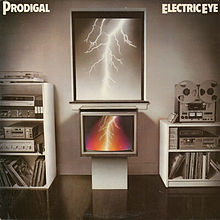 6. Prodigal – Electric Eye
6. Prodigal – Electric Eye![]() (1984) I’ve said so much about Electric Eye and what it means to me over the years, it hardly seems necessary to say more. You can find the link to a conversation I had with lead singer Loyd Boldman down below, but I thought I’d take the opportunity to extend my best wishes and prayers to Mr. Boldman (and the rest of the band, Messrs. Workman, Fields and Wilson). Boldman’s been experiencing severe medical difficulties over the past few years, and has found himself in the hospital on frequent occasions.
(1984) I’ve said so much about Electric Eye and what it means to me over the years, it hardly seems necessary to say more. You can find the link to a conversation I had with lead singer Loyd Boldman down below, but I thought I’d take the opportunity to extend my best wishes and prayers to Mr. Boldman (and the rest of the band, Messrs. Workman, Fields and Wilson). Boldman’s been experiencing severe medical difficulties over the past few years, and has found himself in the hospital on frequent occasions.
That’s a head-turner for me, and challenges the rusty machinery of perception as few things can. We see a musician, a band, make an album and that record follows us through our lives. We get an impression that, because of our learned ideas of what it means to record rock music, these people are living comfortably and nothing ever fazes them. For those who produced albums that have withstood the times and have separated themselves out as being a greater work than was expected, or necessary at that moment, most didn’t get rich or famous. Sure, they had fans, but a lot of the labels didn’t like the risk that was inherent with these groups. They didn’t usually trade in feel-good aphorisms or make bumper-sticker-ready slogans and, sadly, most of them were required to work the day job to maintain this alternate career.
It is with a double purpose that I chose to do this series, to you the reader who deserves to be able to hear about and enjoy this music, and for the artists who never really got their just due. This stuff mattered then, it matters now, and if this sounds like a “thank you,” then I haven’t completely lost my ability to communicate.
For more on the story: Here is our overview of Prodigal, complete with the interview with Loyd Boldman.
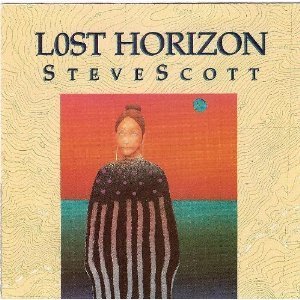 5. Steve Scott – Lost Horizon
5. Steve Scott – Lost Horizon![]() (1989) Technically, Lost Horizon is a collection of tracks not only from Steve Scott’s official release Love In The Western World, but from other releases that never got great circulation, and a backlog of recordings that hadn’t seen daylight. With that, the CD can sometimes sound frenetically disjointed, but in a good way. The first half of the release is big on the guitars, the latter highlights keyboards. There are world-beat influences, punk nods, big anthems, intimate, Spector-influenced ballads and a poem set to music. Like I said, frenetically disjointed.
(1989) Technically, Lost Horizon is a collection of tracks not only from Steve Scott’s official release Love In The Western World, but from other releases that never got great circulation, and a backlog of recordings that hadn’t seen daylight. With that, the CD can sometimes sound frenetically disjointed, but in a good way. The first half of the release is big on the guitars, the latter highlights keyboards. There are world-beat influences, punk nods, big anthems, intimate, Spector-influenced ballads and a poem set to music. Like I said, frenetically disjointed.
Scott is a poet and writer, not just a musician, and I believe he sees very little difference between the mediums. His songs are vignettes, think-pieces, but they never lose sight of being a song. The approach is kind of clever in that most of the tunes are just great pop songs, but as they get to the middle and toward the end, they develop in grand dramatic fashion, building and, as often, allowing the music to fully upstage his lyrical intentions. I don’t think it is an accident either. How better to get someone interested in your song, to persuade them to sing along, than to make the music as compelling as possible.
He has the full resources of the famed Exit Records staff behind him including The 77’s and Charlie Peacock and, by the time the disc is over, it hardly feels like a slab of leftovers. This is one of those discs that is so easy to present to people who say, “Christian rock? Yuck!” They fall into it just as completely as I did, and that’s high praise for something frenetically disjointed, isn’t it?
For more on the story: We had the great pleasure to speak with Steve Scott about the album.
Lost Horizon is an album that is more a compilation, built up from projects that (if my info is correct) got stalled out at the labels you were attached to. What was the process of putting it together?
SS – The intended follow up to Love in the Western World was to be called Emotional Tourist. This was produced by Charlie Peacock, but tracks like “Not a Pretty Picture” and “No More Parades” (and others/more guitar/neopsychedelic) had a few more of my fingerprints . Peacock is more evident in the poppy, synthy versions of songs like “Sound of Waves.” The album never came out in that form and under that title. Then there was a mini album called Rice (also never came out) built around the louder/weirder tracks off that project, with songs like “Touch” and “Shadowplay” included, and excluded were songs written expressly for the Emotional Tourist project at the behest of executive producer/label, such as “Heaven Hears the Heart that Breaks,” “Memory Babe” and “Minor Characters.” “Characters” made it onto Lost Horizon, while `”Heaven” and “Memory” along with a poppier version of “Love in the Western World,” plus a version of “Ghost Train” made it onto an album called Magnificent Obsession.
There are two distinct phases on the disc – the more guitar-oriented phase (with the 77’s backing you up) and a more synth-driven phase. What were the circumstances for each of them and did you have any qualms about putting the two together as one release?
SS – Lost Horizon (named after the James Hilton novel about a mythical Shangri-la somewhere in the Himalayas) was the title I gave to a composite collage of tracks off Tourist and Rice with some remixes off the Western World album. I felt that both the loose affiliations, shared or overlapping thematics and overall sonic feel of (emerging) ethno ambient rock strangeness sanctioned the possibility of collaging these tracks together and seeing what new stories emerged from their juxtaposition (which, in fact, was the working method on “This Sad Music,” the Whale poem). No qualms about this combination because a: it fits my aesthetic and b: I figured that when I became a rich famous household name rock God we could do re-mastered, proper sequenced reissues with groovy “now it can be told” sleeve notes.
Looking back it can truly be said that albums like Lost Horizon were a toe dipped in the water, paving the way for The Butterfly Effect and We Dreamed That We Were Strangers, both the sound bed spoken word effect (the whale poem) and the overall “Across the boundaries/traveler” thematic.
What is the role of the artist who is Christian in today’s media landscape, and is it different than those who call themselves “Christian artists” (if you get my meaning)?
SS – The role/place of the Christian artist or artist who is Christian is to tell the truth the best way they know how from the platform of their own growth and progress as a person. Some will raise questions (plant seeds), others will guide the conversation as it grows (water), some will provide answers (help with the harvest) . According to the apostle Paul, its all good.
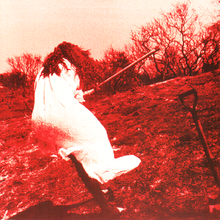 4. Adam Again – Dig
4. Adam Again – Dig![]() (1992) If Perfecta is about looking inside a relationship without blinders or protective language, Dig is that same approach applied to the whole world. In retrospect, the listener could hear seeds of what was coming later in the songs like “River On Fire,” which is about a crumbling union but uses, as a metaphorical touchstone, the burning Cuyahoga River.
(1992) If Perfecta is about looking inside a relationship without blinders or protective language, Dig is that same approach applied to the whole world. In retrospect, the listener could hear seeds of what was coming later in the songs like “River On Fire,” which is about a crumbling union but uses, as a metaphorical touchstone, the burning Cuyahoga River.
On the album, the funk still is there and ever-present in Greg Lawless’ wah-wah pedal, but it’s a harder edged set of songs than they’ve ever tackled to that point. Even the tender title track, gliding on the Fender Rhodes, gets gritty by the second verse but the lyric, “The earth is hard, but the treasure fine. To the sea I’ll crawl on my knees” reveals the main intentions.
I can take nothing away from the lyrical genius of Gene Eugene, but this album truly is a spotlight on Lawless and he doesn’t disappoint. “Deep” barely holds it together as his guitar, waiting in the wings, prepares to throw down and does so in a blazing closing solo. “Hopeless, Etc.” is the voice of everyone who wants to live a specifically good, worthwhile and notable life yet cannot escape the ghosts of past failures. “Yes I’m (hopeless, helpless, useless)” is that cry for help and recognition that, even though we’re all told we have to make it on our own, our past solo efforts have been disastrous. It is a universal sentiment and Greg Lawless lays down a guitar wail that not only compliments the mood but informs it.
The pseudo-classic track (which is pseudo-classic because you’ve probably never heard it) “Worldwide” seeks to remind the listener that it’s a crazy place we live in, no matter where we’re living. “I’ve heard that these things happen worldwide. Don’t think I’ll ever understand it, don’t think it matters if I do. Three million people in the world, and I only know a few.” Christian, Muslim, Jewish, Athiest, Secular Humanist, Republican, Democrat, Tea Partier, Randian, “Yeah, we all love that Desert Thunder, we put some sticker on our bumper, three million nothings in the world, why should anybody bother?”
Dig doesn’t make a place for Christianity at the table so much as it insists there is no table. When are we going to get this together? “What about Headman Shabalala? Does anybody care about justice?”
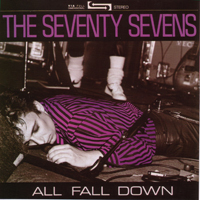 3. The Seventy Sevens – All Fall Down
3. The Seventy Sevens – All Fall Down![]() (1984) This arrived during my last year of middle school, so I was already into the whole mental breakdown of high school and what it meant to be cool, even though there was nary a cool bone in my body. I often tell of the story that, in my high school years, I wore flannel and workpants, combat boots and had greasy hair and a propensity toward poor hygiene. Had I done this only a few years later, I would have been “grunge” and “hip” and what-not. Instead, I was just “skeevy” and smelly.
(1984) This arrived during my last year of middle school, so I was already into the whole mental breakdown of high school and what it meant to be cool, even though there was nary a cool bone in my body. I often tell of the story that, in my high school years, I wore flannel and workpants, combat boots and had greasy hair and a propensity toward poor hygiene. Had I done this only a few years later, I would have been “grunge” and “hip” and what-not. Instead, I was just “skeevy” and smelly.
But even those who seem to indicate they’re not interested in being cool have concerns about whether they are or are not. I was no different. That was, to my shame, why I never really told anyone about my Christian beliefs. Christians were, to them, this ultra-sunny, blond-haired and besweatered bunch that replied to every given statement, “Ask God.” Christians were also a bunch of judgmental, ultra-pious know-it-alls that, while believing in the deity of a crucified man, were also really intent on crucifying others. Unfortunately, they were right about much of that perception.
So it was that The Seventy Sevens was one of the most “real-rock” Christian bands ever to punch the downstroke, and so it was that they were often considered the bad boys of the scene. Their second album All Fall Down was not afraid to court controversy, and not afraid to speak to the masses in a language the masses understood. Rock and roll should be dangerous, and that whole “speaking truth to power” thing ought not be denied, and so songs that dealt with the crossed wiring of sex versus love (“Something’s Holding On”), easy religiosity (“Ba Ba Ba Ba”), and the nuclear genie loosed from the bottle (“Under The Heat”) were dealt with as songs, not sermons. They were on the ground and not in the pulpit, as way too many had been for far too often.
The band’s fans loved that authenticity. The band’s detractors, and often the record labels they landed on, were less impressed with how they forged that connection. To the credit of Mike Roe and company, they never wavered, although that resolve to do it for real seldom paid off in the dividends their contemporaries might have enjoyed. Even with access to major secular labels and the daring to tell it like it is (as opposed to how you’d like it to be), they were loose cannons and were dealt with in that manner.
For skeevy kids in high school who were living double lives but looking for some glimmer of direction, that was vital. The 77’s seemed to say that you can still have faith and, at the same time, live in this real world. To be what you believed, you didn’t have to crawl into a cardigan and look for targets to baptize with disdain. You could still be yourself; just your best self.
For more on the story: Here is a write-up regarding the 77’s album Sticks and Stones.
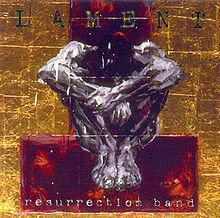 2. Resurrection Band – Lament
2. Resurrection Band – Lament![]() (1995) Resurrection Band, later Rez Band, later just Rez, celebrated their career by making one of their finest works in it. Produced by King’s X guitarist Ty Tabor, the disc seemed like it was delivered straight from 1975, but in the very best sense of it. The guitars rip and reel, the keys are all standard rock organs, not synths, the sound is slightly dry but lively and naturalistic.
(1995) Resurrection Band, later Rez Band, later just Rez, celebrated their career by making one of their finest works in it. Produced by King’s X guitarist Ty Tabor, the disc seemed like it was delivered straight from 1975, but in the very best sense of it. The guitars rip and reel, the keys are all standard rock organs, not synths, the sound is slightly dry but lively and naturalistic.
Using the oft-told parable of the prodigal son as the jumping-off point, the concept album recasts him as a rebellious firebrand, rejecting what he considers his family’s beliefs as so many did in the mid-1960s and heading off into a walkabout in the sea of love, sex, fame and crisis of the heart and mind. He starts with his runaway anthem in “Across These Fields” singing, “This is my day, my declaration. I’m just a memory, I am gone. This is my right, I will be free…”
But as it always seems to be, that rush of freedom goes from idealism to compromises to that moment where he’s staring himself down in a mirror, enraged and in desperation. “Can’t remember what dreams were made of, can’t believe that there’s anything left – What I thought was a Garden of Eden became the valley of the shadow of death.”
Realization and redemption follows and the closing “Across These Fields (Reprise)” is wildly uplifting, rocking, but fully gospel in the best sense of it. Thematically, all the parts interlock and as a narrative the piece works fantastically. As music, it’s as solid a rock record as you’d ever want to hear.
For more on the story: We spoke with Glenn Kaiser about Lament, working with Tabor and wondered why Lament was the last Rez album with original material.
To my knowledge, Lament was the first time the band worked with a producer outside of the JPUSA circle. What was it like to work with Ty Tabor? What did he bring to the recording that might not have otherwise been there?
GK- Fact is we’d have loved Led Zep’s or AC/DC’s producers or someone like that to produce us from the start, but early days we didn’t have the loot and the labels we worked with never had it either. The quality producers who would have understood our musical approach didn’t come cheap- so self-production was how we got projects done. Ty was a gem, just a great experience… and that happened as the result of a mutual friend telling me Ty would likely love to do it- which floored us all! His take (and mine ever since) was to bring the essence of who we were out sonically- not over-use reverbs or other effects, and to not sterilize the performances of each song, especially the vocals. Prior to that we would take hours to punch in and fix each and every blooper, flat or sharp in the vocals, and somewhat in the other elements. He brought a focus to performance in terms of integrity and energy in the production we really benefited from with Lament -and for that matter, most of what I’ve done since.
Lament was the last album of original material, and then you focused solely on the Glenn Kaiser Band. Was there anything about Lament (and Ampendectomy afterward) that provoked the band to say this was a good time to end Rez Band?
GK- Actually, GKB and all my solo projects and continuing tours to date were more core to the blues and blues/rock of my own youth. So for me, it was a natural sort of full-circle progression, and I’d say aging and seeking the deepest possible musical integrity in my life. For each in REZ, all were more and more involved in raising families and in other work (Stu is an associate pastor in the Chicago ‘burbs, John a pastor at JPUSA and director of Cornerstone Festival, Wendi teaches in our Project 12 Bible/Discipleship school, etc.). Focusing on other areas and the sense we each needed to do so along with the fact there were more and younger bands doing what we had done for so long all sort of seemed to direct us to let REZ go. Lament was something akin to REZ’s Pink Floyd The Wall or the Who’s Tommy thematic project, something we’d always talked about doing. Ampendectomy was our nod to the “unplugged” thing. REZ rarely did what most others were doing so we’d avoided unplugged stuff for a long time. In the end we thought it might be refreshing and a good Thank you, G’night thing to do so that’s how the Ampendectomy CD came about. Thankfully both Lament and Ampendectomy were very well-received as were most everything we had done until then. You never know of course… it’s a matter of faith and hard work.
…and here at number one, an album that got me through my young years without feeling like a total outcast, yet at the same time proved to me that art has a place in every expression of faith.
 1. Daniel Amos – Doppelganger
1. Daniel Amos – Doppelganger![]() (1983) In the early 1980’s my family was going through a crisis of faith and we started attending an Assembly of God church. Let’s just say that the experiences of myself and my sister in parochial school left our time under the spires of Catholicism borrowed at best. In this church we’d found ourselves in, the ideas of separation of cultural expression were very strong, and like anyone there was an implicit desire to fit in. Rock and roll was first to go, which was hard on me.
(1983) In the early 1980’s my family was going through a crisis of faith and we started attending an Assembly of God church. Let’s just say that the experiences of myself and my sister in parochial school left our time under the spires of Catholicism borrowed at best. In this church we’d found ourselves in, the ideas of separation of cultural expression were very strong, and like anyone there was an implicit desire to fit in. Rock and roll was first to go, which was hard on me.
They said I was precocious. I learned how to play records on my little turntable before I learned to read, and I learned to read earlier than most thanks to the printing on the labels. My school was The Beatles, Motown, various entries from Sly and the Family Stone. This separation of church and music was difficult stuff.
So yes, I gravitated to Christian Rock fairly quickly for the sake of my sanity, which sounds odd since most people would say CCM would instead drive them crazy. A lot of what I listened to fit the usual stereotypes: hard-driving rock tunes glopped up with Jesus words which, often, never made sense in context. The vocals often sounded churchy and dispassionate. Content meant testimony was replaced by sermonizing, and the bizarre reality is that rock came from the blues and the blues came from gospel, so this squeaky-cleanification seemed to deny the very DNA inside it.
But it had guitars and a beat and, for awhile, that was enough.
One day, on a trip to our local Christian book store with my sister, I rooted through the exceedingly tiny record rack. I flipped through the A-through-C tab, past gobs of Tammy Faye Bakker releases to find one hidden at the back. It was a black and white cover, with a slight sepia tint, over a photo of a creepy looking mannequin. The name was Doppelganger and it was by some Daniel Amos guy. Now, Daniel Amos is not a guy, but two names of books from the Bible. Ask the band if that was a good idea and they’d likely say no, alluding to the many years of needing to explain there was no Mr. Amos.
Against my sister’s protests, I plunked my money down and bought the album. On first listen, it was the weirdest thing I had ever heard. The first track was spoken word over a song played in reverse. The second track was a funky, new wave cut called “Mall (All Over The World).” The influences ranged from the Beach Boys and old-time rockabilly to punk rave-ups to a nod to Simon & Garfunkel’s “The Only Living Boy In New York” in “Here I Am, There You Are.” Lyrically, there were Biblical allusions, nods to Dostoevsky, samples from The Price Is Right, bits and pieces that, to this day, I’m still discovering.
That first listen turned me off, but not for long. I went back to the album and quickly gravitated to the strangeness, recognized this wasn’t a pasteurized version of a product as so many Christian Rock releases were, boiled away for your protection. This was a band and an album aware of the world and in conversation with it, finding holiness in texts not considered “sacred” and being honest about things less than holy in the presumed places. It was honest and original, not trying to sound like some new wave band out in the secular market, but just being a new wave band where they were.
I had the opportunity to tell DA’s lead singer and lyricist Terry Taylor, a couple years ago, that his music got me through high school and this is true. I was becoming disenchanted by the claims the church was making, the unreality being reported from the pulpit about how God was something of a heavenly sugar daddy in whom you believed, and then got stuff from like nice houses, cars and eternity too. I’ve known a lot of good Christian people in my life and, more often than not, they’re struggling financially, they grapple with what they believe and test the structure of their faith daily. These are not the types who stage massive displays for the limelight, the notoriety or the cut of the tithes. They give it their all because they believe they’re a part of something greater, a positive force, something meant for the benefit of all, not for the self-aggrandizement of some.
Most of these people wind up living the most modest of lives, but they’d never shun someone different from them, not even in beliefs. They’d sit at the table and talk and just say who they are and what they believe, not that the other is wrong, or that the other is doomed to Hell. They would share. Many times, they’d share to the brink of having nothing left for themselves, but that was the cause of Christ in a nutshell. He drank with the sinners. He hung with the thieves. By the time Daniel Amos came to me, I was ready to chuck it all and admit the utter hypocrisy of the whole thing. Do you see what I’m seeing?
Yes, was the musical reply. We see it. In every life, we’re also a part of it. We’re flawed. We make mistakes. We can hurt others. At the heart of spirituality, of faith and of Christianity, is the understanding of our flaws, to back up, to ask forgiveness not just of a deity but of those we’ve wronged. Humility is not humiliation, but of recognizing our place within the family of man. Just because a Christian believes Christ is the Messiah and your Jewish neighbor doesn’t isn’t cause to heap scorn or hate upon them. It doesn’t give us the right to burn a Qur’an. What would Jesus do? Well, He wouldn’t do that, I’m fairly sure.
In the end, I’m giving a lot of credit to this album for what it meant to me at that time, and over time. What it should mean to you, the unfamiliar, is that it rocks pretty hard. Even today it remains one of my favorite albums of all time. In my pantheon, it sits next to Revolver and Pet Sounds, next to The Wall and near Dark Side of the Moon, and it belongs there.
I would be neglecting my own core beliefs had I not included the next few pieces of text from Tom Gulotta, a friend of DA lead singer Terry Taylor. Please take the time to read it and, if you are compelled to do so, see about how you can help.
A desperate plea from the friends of Terry Taylor
by Tom Gulotta on Monday, April 4, 2011 at 11:17am
To any and all who been blessed by the life and gifts of Terry Taylor,
It is with much regret that I come to you with a desperate prayer. Our dear friend and brother, Terry Taylor, is experiencing one of the direst personal struggles of his life. Since the cancellation of Catscratch (the Nickelodeon TV show he provided score for), his financial situation has been dismal to say the least. His wife and daughter both teach at a pre-school to help make ends meet week to week but it hasn’t been enough and two years ago they lost their home in foreclosure.
As many of you know, Terry, who is uninsured, has had ongoing medical problems for the past five years, with last year being particularly troublesome and expensive. The bills have mounted steadily and the late fees continue to add more misery. Last month their little apartment was burglarized and items of great sentiment were stolen.
As an unwanted culmination to one of the toughest years in the life of his family, this past weekend his daughter Noelle was rushed to the hospital and had to have emergency surgery to remove her gall bladder. He hasn’t wanted us to share his story and burden his fans and we’ve been trying some creative new ideas to raise Terry’s income but this last blow has broken the camel’s back and nearly broken Terry’s spirit.
I know many of you would want to help our brother in this time of personal crisis. If we all gave $10 or $20 it would go a long toward relieving this burden for their family. Some of you may be able to give more; some less. Anything would help right now.
We’ve set up a relief fund that can be donated to through Paypal. Please visit www.DanielAmos.com and click the donate link in the upper left corner. Be sure and click on “Update Total” after you enter the amount. If you’d like to donate in some other way, please email me at Tom@eveselis.com.
Thank you for hearing and for being the support you’ve been to Terry and his family for these many years.
Sincerely and with much love and gratitude,
Tom G., the Townsends, the Lost Dogs, and Terry’s family
Related articles
- 50CCM50, Part Two (popdose.com)
- 50CCM50, Part Three (popdose.com)
- 50CCM50, Part Four (popdose.com)





Comments